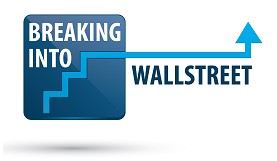 Do I need an MBA to become an equity/credit research analyst?
Do I need an MBA to become an equity/credit research analyst?
It’s a common question. Unfortunately, there is no one “right” answer. It depends upon where you are at right now in your professional career.
If you are an undergraduate right now, you are probably better off signing up for the CFA program and completing Level 1. Besides, you need a few years experience before you can expect to get in to business school. An MBA just isn’t an option for an undergrad.
However, if you are currently in the working world and want to break into finance and get out of the sh*tty job you work at now (are you a consultant?), then an MBA probably makes sense. I went to business school and used it to transition into the career I have today.
Quite frankly, I enjoyed business school. After a couple of years in the working world, business school is the closest thing to going back to undergrad. So you have to give up two years of earning a salary, but let’s face it: you’re old job sucks, this is why you are going back to business school.
What about if you are an analyst now and are looking to advance your career? You probably don’t need an MBA, especially if you are already a buy side analyst. If you’ve already broken in and are working as an equity analyst, your work results will matter more than any degree. But if you don’t like where you are working today, you can always go back to business school and use it as platform to improve your network and find a better job.
So, here’s the rundown based on where you are now:
- Undergraduate – No, business school is not an option. You need work experience.
- Undergrad degree and working – Yes.
- Undergrad and already an analyst – Not necessary (but it can’t hurt)



When you say “transition into” another career, how related does this career have to be? For example, if I’m a third year CPA from a Big 4, how easy is it to transition to a corp development job after graduating from a top 20 MBA? Or would I need related finance experience to even be considered?
You’re example is exactly what I was referring to as transitioning into another career. I entered business school with a finance undergrad degree but non-fnance related work experience. I went to b-school specifically for finance so I was able to tap into a new network that was not available to me as an undergrad or even when I was working.
My only advice is to think about what career you want coming out of b-school and then focus on getting into the school with the best program specific to your chosen career path. The alumni network is the most valuable part of b-school, so aim for the programs with the best alumni networks in what you want to do.
Any recommendations on getting into business school to transition to a career in hedge funds for someone with a background in economics research and a degree in economics but no finance experience?
I see that you mention the alumni network is important. How important is the prestige of the MBA program? Do I need a top 10-15 MBA to break in?
Any opinion on part-time programs?
An economics background is good for getting into finance. If you want your pick of the very best HF and AM shops, a target MBA really helps. But you don’t need a top tier school to break into the business. Try for the top schools, but also consider MBA programs that are CFA partner schools so you can work toward your CFA at the same time.
Oh, and a definite “NO!” on the part-time programs. They are barely above an online degree and should solely be used for advancing in your current position, not transitioning careers.
In your article you advice those who want to break into finance should get an MBA. Does it matter which school to get an MBA? I’m forty and been trading options, stocks, futures, and bonds online since 2002. Over the past 10 years my trading generates an average of 20% gain. At the mean time I have been working toward my Bachelor Degree with Finance and Economic. I have never worked for a financial organization, but I have a great passion for finance and investment. So, do I have a chance to break into the finance at forty? Should I get my MBA or CFA or both starting at forty? If yes, I’m thinking of getting my MBA from Keller Graduate School of Management, the problem is that the school is not AACSB accredited, but it is in the process of getting ACBSP. Does potential employer care about these accreditation?
can u just tell me..what is options….with MBA to do..?
good article.
what is the best database to search the alumni network in a particular field of finance?
Or is the word of mouth the best way?
Thanks
Hi. I am currently an IT consultant (2years) at one of the big four doing. I did some SQL, and data analytics and I have a background in chemical engineering. I have been thinking that I have more potential working in the finance world and I believe I need an MBA in finance for that. Any advice from you would be really appreciated.
My question is about transitioning at certain ages. I am 37 and thinking about going back for my MBA? Am I too late in the game? I have had some asset management experience prior, but my current job is not in investments. I have also passed level 1 of the CFA. Also, i saw your post about NO part time MBAs, I am in very close proximity to a university that only has evening classes, not sure if its technically part time, i think its still considered full time (just at night only). What are your thoughts? I would love to get over on the buy side
Hi Mike,
In recent years there’s been an increase in popularity of Masters if science in applied finance, quantitative finance, finance engineering. How do these programs stack up to an MBA if I want to be a flow /prop trader whos dream is to eventually manage funds? Thanks.